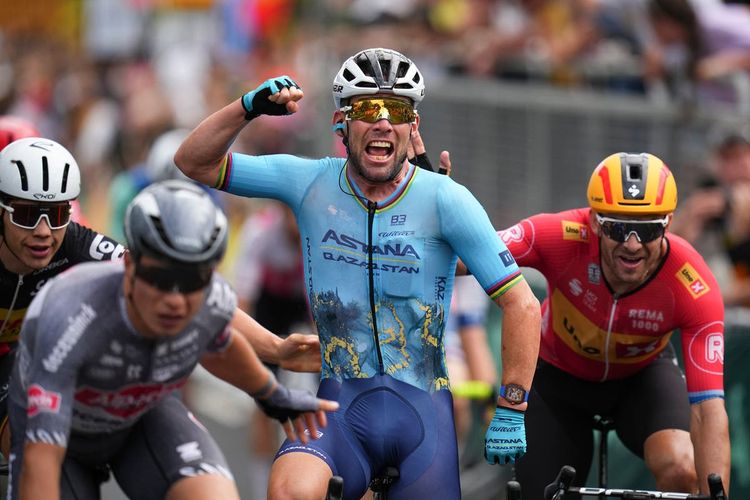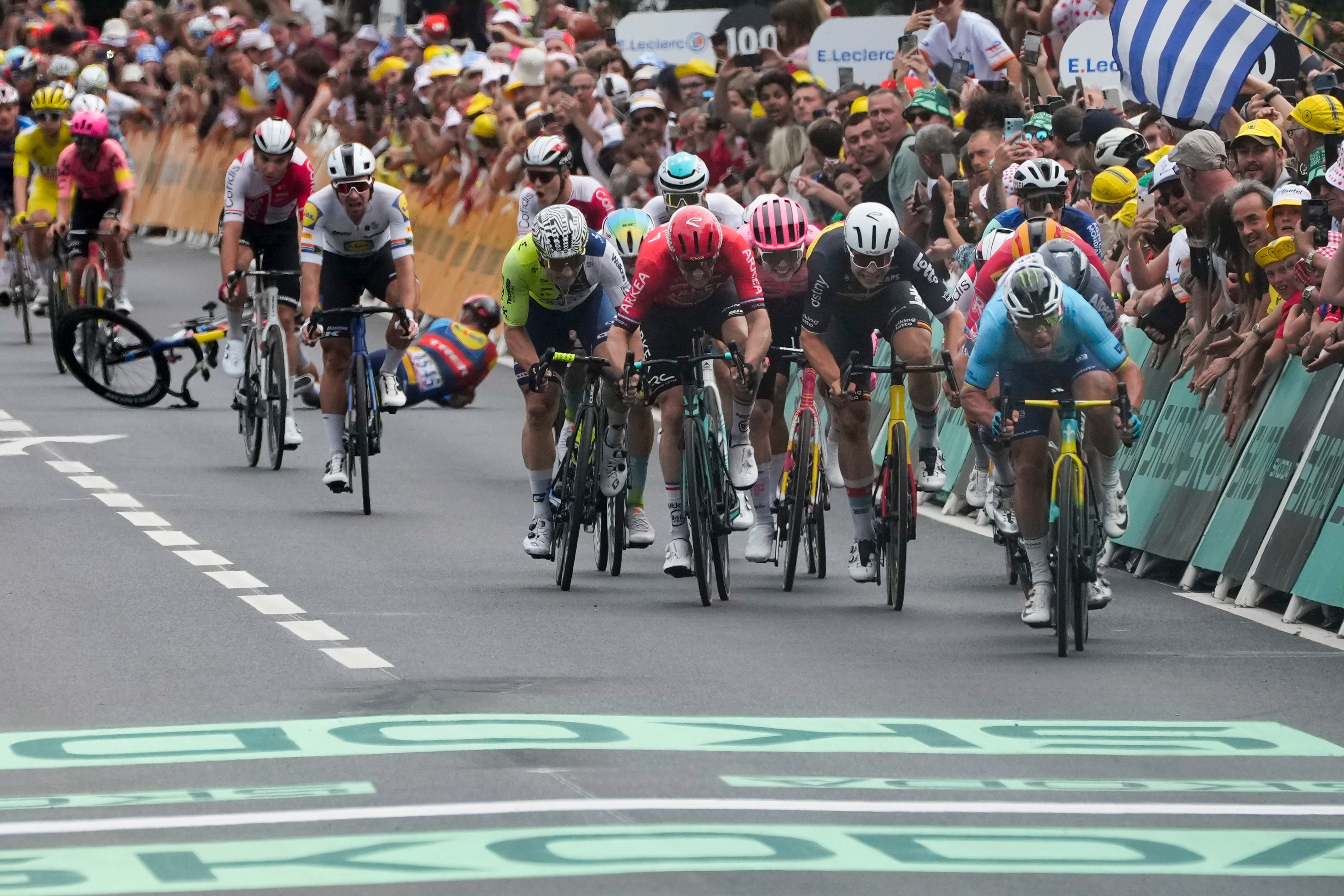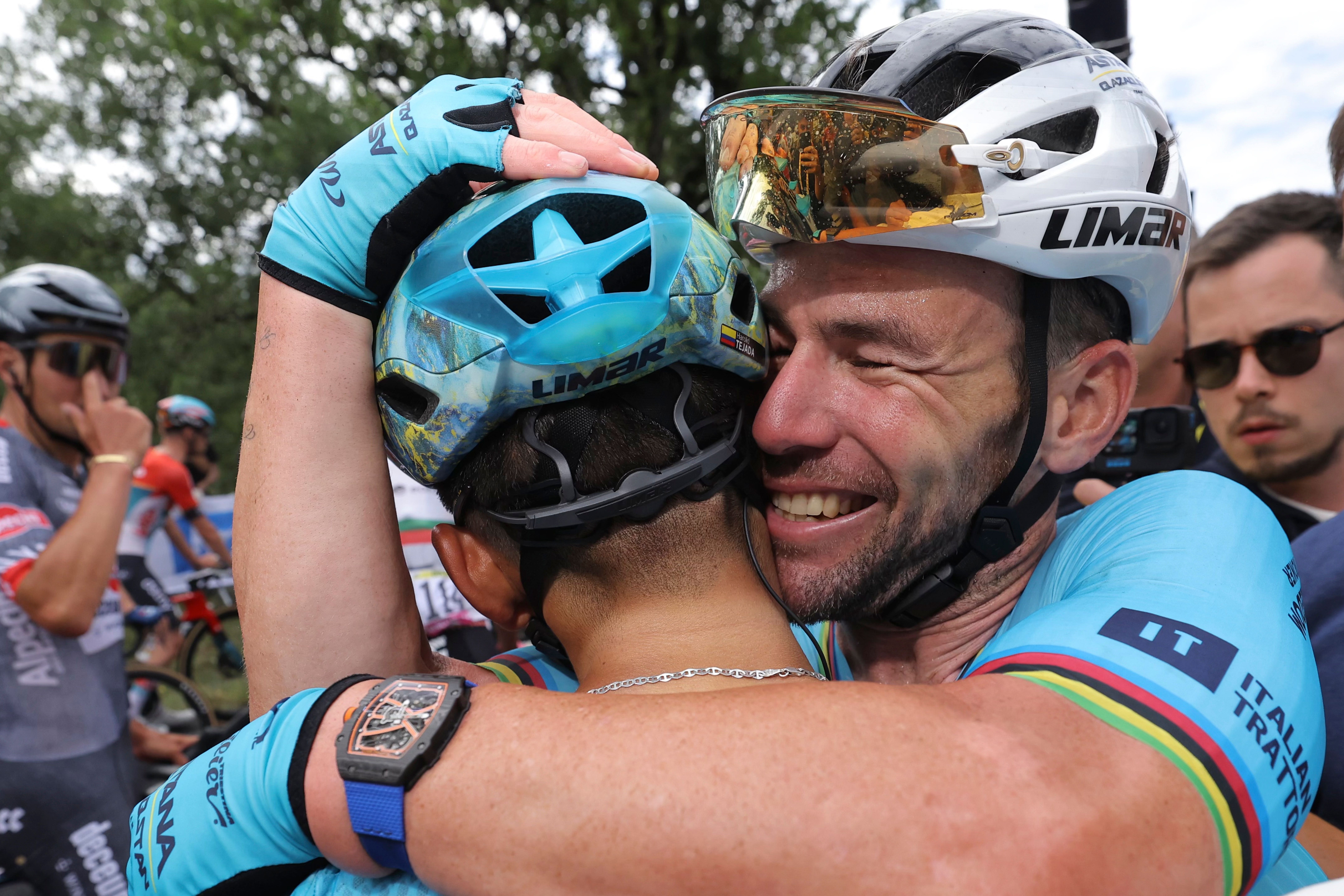How Mark Cavendish out-thought his rivals to win a record 35th Tour de France stage

Get The Latest Sports News With Our Free Newsletter!
Get Updates On Sports News With Our Free Email!
Looking back, the time we should have realized Mark Cavendish was going to win his 35th Tour de France stage was not when he was crossing the finish line with determination, leaving his competitors behind. It was actually a couple of days before, when he was struggling in the mountains of Italy and snapped at a camera operator invading his privacy. If Angry Cavendish is making an appearance, this could be the year for him.

He has a way of using his frustration as motivation, channeling it into energy that brings out the best in those around him. Mark Renshaw, who has been by his side for many years, explained in an interview with The Independent that they would often argue after races but ultimately, being around him pushes everyone to strive for improvement.
Despite the chaos of a bunch sprint and the inherent dangers involved, Cavendish remains remarkably composed. Sprinting at high speeds, surrounded by other riders, with the constant threat of crashing and potentially severe injuries, requires a level of focus and skill that is difficult to comprehend for most. In the midst of a frantic sprint to the finish line, Cavendish must navigate through the chaos and find an opening to reach his goal, all while being acutely aware that one misstep could spell disaster. It is a high-stakes situation that few can truly understand.
During the height of his career, Cavendish would often have Renshaw or Michael Morkov assisting him at the end of a Tour de France stage. These elite lead-out riders acted as navigators, protectors, and supporters all in one, guiding Cavendish through the race's hectic final moments. They were an essential part of a team strategy to ensure a successful finish. However, on Wednesday, Cavendish found himself without any support, facing the finish line on his own.
"We didn't quite achieve our goal as a team," he said. "But the guys worked together and put me in a good position, and I took advantage of the opportunity and went with the flow."
The final part of the race highlighted Cavendish's exceptional skills, giving a glimpse of why he is considered the best in the sport. While sprinters may appear to have extraordinary abilities, they are still limited by physical barriers and other riders on the course. Sprinting is all about finding the right space and timing, carefully positioning yourself amidst the fast-moving figures around you. It's like playing a high-speed game of Tetris, where the top sprinters can navigate through the chaos with instinct and precision.
If you rewatch the footage, you can see the route he takes and the challenges he faces along the way. When there are only 500 meters left, Cavendish is right behind Jasper Philipsen, the top contender from last year's Tour. He spots Phil Bauhaus attempting to move ahead of him and pushes the German rider aside. They collide with each other, and after regaining control, Fernando Gaviria is now pushing to pass him. Once again, Cavendish uses his elbow to hold his position, and Gaviria is unable to overtake him as the distance between them decreases.

Following the pushing and shoving, it's time for some planning. Cavendish notices that Philipsen is in a tough position and quickly takes advantage by latching onto Pascal Ackermann's back wheel. This proves to be a smart decision as Ackermann propels him to the front of the pack, leaving Philipsen struggling to keep up and losing speed as he gets sandwiched against the barriers in the last turn.
As they near the end, Cavendish suddenly changes position, moving to the other side of the road before speeding towards the finish line. He found a way to win that no one else could see. "It's a big advantage, especially when you're not as strong as the others," he explained about his strategic skills. "Being able to think ahead is definitely helpful."
Cavendish has always had a natural talent for speed, and that ability is still strong in his legs – he demonstrated this when he won the last stage of the Giro d'Italia last year. However, as he has aged, his mind has become an even more vital asset. In the past, he had a strong team supporting him and could make minor errors without consequence. Now, he is no longer the quickest cyclist in the group and may not even place in the top 10 in a head-to-head sprint.
The planning had to be flawless. While his Astana team may not be as strong as Philipsen’s Alpecin-Deceuninck team, they focused all their efforts on the last kilometer of stage five of the Tour de France. Cavendish explained, "We prepared meticulously for this moment. We meticulously planned our team, equipment, and every small detail for today."
He has always been very careful, studying the road map the night before a fast stage, browsing through Google street view, imagining every little hill. But in the end, he had to act quickly, following the faster riders. "That's just how the Tour de France is," he explained. "You sprint with all your might until you reach the finish line. And who knows, maybe your life could change."
It shouldn't be possible for him to achieve this at his age of 39. He is the second oldest winner of a Tour de France stage in its long history of 121 years. Many people would have retired by now if they were in his position, especially after facing challenges like struggling to climb stairs due to Epstein-Barr virus or crashing out of the race with a broken collarbone last year.
However, Cavendish has a different mindset. While lying in his hospital bed, he made a decision: he didn't see this as a signal that he was no longer suitable for the Tour de France, but rather as an opportunity to address unfinished goals on the road. He was determined to recover and improve his speed.
During the weekend, despite experiencing heat exhaustion during stage one, he never lost hope. "I've completed 15 Tour de Frances already," he explained. "I don't enjoy having rough days, I don't like the pain, but I understand it's all mental. You just have to keep pushing through it."
After Cavendish's latest accomplishment, it is likely that this will be his final Tour de France. There are only about four more opportunities along the route for him to win this year. His impressive record of 35 stage wins may never be surpassed, but he could make it even more difficult to beat. Cavendish jokingly told Tadej Pogacar after the stage not to surpass his record, with a friendly warning. Pogacar, at 25 years old, has 12 Tour de France stage wins and it's doubtful he will beat Cavendish's record, just like anyone else likely won't.
Cavendish has finished what he set out to do, his fate is now complete. But his work is not finished just yet.





























































